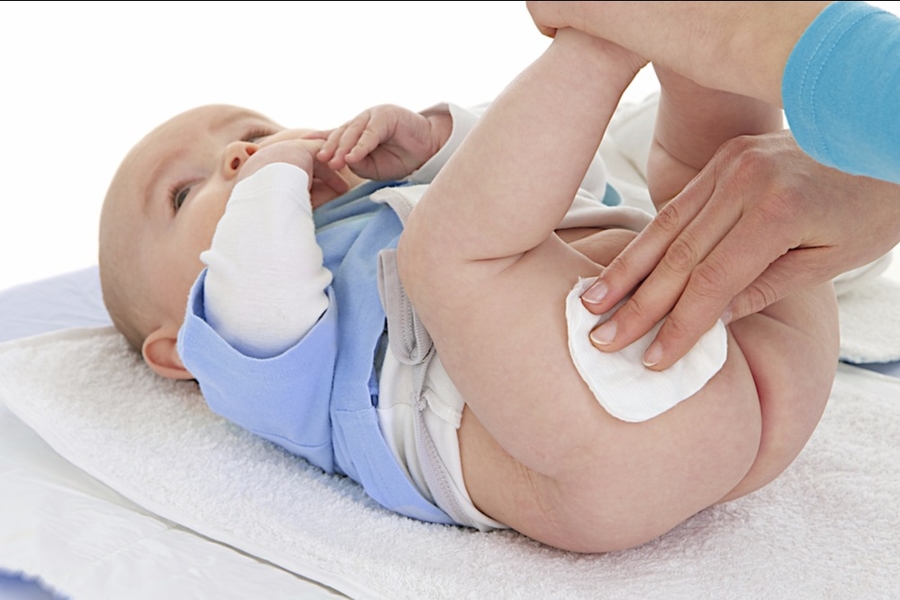
The Embarrassing Discussion On Genital Care For Babies
16 Sep 2015 | 4 min Read
Prisha Lalwani (Mummasaurus)
Author | 71 Articles
Just last week my baby started to pull out his little thing out of his diaper. Entire day he would keep tugging on to it, and pee all around the house, soiling the house, his clothes and his skin. It was so embarrassing. There was barely anyone that I could discuss this with. I mustered some strength and spoke to my Mom about it, and she went on to exclaim, “Oh don’t worry! All boys do those things!” and burst out into laughter.
Of all things, I knew he was not doing it out of enjoyment. I tried to coach him on not doing it, to keep “it” in his pants, scolded him, and even slapped him out of frustration, but all of it in vain.
I made up my mind to visit the doctor as this did not seem to resolve. As we started to discuss with my pediatrician, I hinted my husband to have ‘the talk’, and guess what, my husband refused. It was embarrassing, but I tried my best to explain it to the doctor. He could identify the shame in my tone. He checked my son and took me back to his table. He drew a simple diagram and explained the boy anatomy to me and taught me an important lesson in genital care… and as I had guessed it right, he was not doing it for “all boys do it.
We feel shy, embarrassed, and we ‘prefer’ not to talk about it, but all of this does more harm than good to our children. Genital care is as essential as care of any other body part of the child. Poor hygiene and incorrect methods can cause really nasty problems.
I read a lot of valid literature as taking genital care of my kids was now more important than ever. And if I’m not going to do it, WHO WILL?
Genital Care for Babies:
1. Always rinse their genitals with warm water when giving them a bath, and when rinsing for poo. Avoid using any soap or any other substances for the genitals.
2. Always clean baby poo with water, or cotton swabs, or any soft cloth. Never use wipes as they tend to cause allergic reactions to some children
3. Do not apply baby talcum powder in baby genitals. If you want to keep them dry, change their diapers and nappies often. If you want to prevent or cure rashes, use diaper rash specific creams or simply some coconut oil.
Genital Care Specific to Boys:
4. The foremost suggestion I have for Moms of Boys is to retract their Excess skin on the penis. A lot of literature suggests doing otherwise, but don’t let internet alone be your guide. The problem is that we think it is not really necessary, but fiddling, scratching, itching, tugging are all symptoms of skin stuck on to the shaft. If not retracted well, it is done later with the help of medical procedures which are conducted without anesthesia and are very painful.
5. Ensure that you are not pulling back the skin too harshly. Always use a very light handed approach to cleansing your baby as the excess skin or the head part can get damaged with a lot of force. Always use a small dab of any oil like coconut or olive oil or even the medical ointment, soframycin.
Genital Care Specific to Girls:
6. Use damp and soft cotton soaked in lukewarm water. Gently separate and cleanse her parts from outside to inside and upwards to downwards. Following the suggested direction of movement is important, as incorrect movements can cause harmful bacteria to travel inside her body and cause infections as severe as a urinary tract infection.
It is crucial for us, as parents, to give up the feeling of embarrassment as it serves as a road blockage to our child’s safety and hygiene. In case you notice anything unusual, make sure to discuss it with your doctor – as safety of your child comes first!
A


Suggestions offered by doctors on BabyChakra are of advisory nature i.e., for educational and informational purposes only. Content posted on, created for, or compiled by BabyChakra is not intended or designed to replace your doctor's independent judgment about any symptom, condition, or the appropriateness or risks of a procedure or treatment for a given person.
